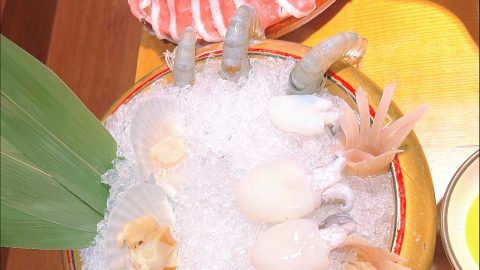Can you eat seafood porridge during postpartum confinement?
Generally, during the postpartum confinement period, women can consume seafood porridge in moderation if they are not allergic to seafood, have recovered digestive function, and the seafood used is fresh and thoroughly cooked. However, it is not recommended for those who are allergic to seafood, have weak digestion, or if the seafood is undercooked. If in doubt, it is advisable to consult a healthcare provider beforehand. Detailed explanations are as follows:

If a woman during confinement has no history of seafood allergy, her digestive system has gradually recovered after childbirth (e.g., without bloating, diarrhea, or other discomfort), and the seafood porridge is prepared with fresh ingredients that are fully cooked until soft and tender, moderate consumption can provide high-quality protein and trace elements that support physical recovery. Additionally, porridge is easy to digest and does not burden the gastrointestinal tract, making it suitable for moderate intake under these conditions.
However, if a woman is allergic to seafood such as shrimp, crab, or shellfish, she may experience skin rashes, itching, or even breathing difficulties after consumption. If her digestive function has not yet recovered postpartum, undercooked seafood in the porridge might carry bacteria, leading to gastrointestinal infections and symptoms like abdominal pain and diarrhea. Moreover, spoiled or non-fresh seafood poses health risks. In these cases, consumption is not advised.
Before eating seafood porridge during the postpartum period, women should confirm they have no allergy history. If any adverse reactions occur after consumption, they should stop immediately and consult a doctor promptly, adjusting their diet according to their health status to ensure proper postpartum recovery.




